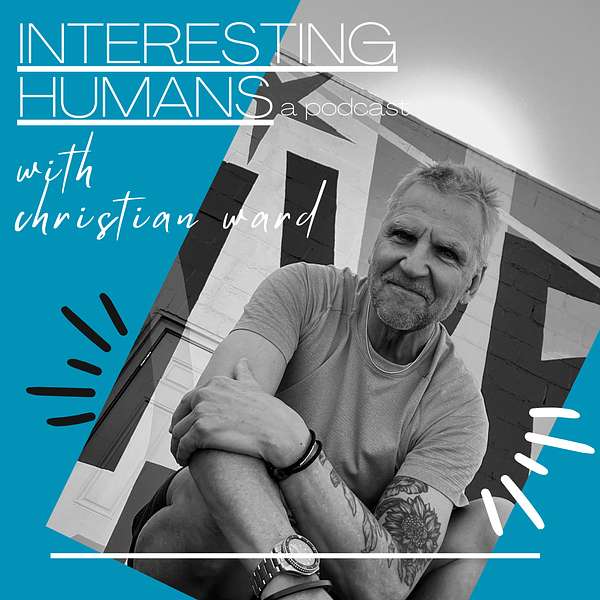
Interesting Humans
There are 330 million Americans. Social scientists tell us we know on average 600 people. All around us are interesting humans. People who in their everyday lives create, solve, move, teach, and love. The Interesting Humans podcast is a deep dive into the mindset, the philosophy and the achievements of the people around us who have fascinating narratives to share. Join me as I explore the challenges they've faced and overcome, how creativity drives them and how ordinary people are not so ordinary.
Interesting Humans
HAKIM NATHANIEL CRAMPTON: FROM PRISON TO REDEMPTION
One of the great gifts of curiosity is that it takes you places you can’t foresee. That was the case for Elin and me July 4th when we slid over to downtown Ypsilanti to see the 2nd Annual Black Empowerment Awards. We were not feeling the patriotism associated with the national holiday with the murders of George Floyd and Breonna Taylor by police and Ahmaud Arbery by white men who chased him down in their truck, and then the protests and rioting all over the country and the teargassing of peaceful protestors in Washington D.C. so that President Trump could hold a bible in front of a church for a photo op.
When it was his turn, Hakim Crampton wove a tapestry of poverty, violence and a community forced into a corner by racism. His mom had pimped for his dad in Detroit and he became involved in drug culture in the sixth grade as a way to earn money and respect and this led to a life on the streets, hustling to earn money and sell drugs and deal with an awful lot of violence.
Hakim freely admits he was no angel. In and out of juvenile detention and jail growing up, he carried weapons, stole, slept in crackhouses, shot people and was shot, and got in fights—all in the pretext of surviving. in 1992, at age 18, he and his best friend were convicted of a murder the previous year by all accounts he had nothing to do with. The confession a step brother gave to police after four days of relentless questioning implicating Hakim—a confession he later recanted—that led to Hakim’s conviction and time in prison in Wisconsin.
This part of Hakim’s story is very similar to the murder convictions of five young black men in New York city in 1989, known as the Central Park jogger case, who were all totally exonerated after spending years in prison.
Hakim spent 14 1/2 years in prison before being paroled. But his story doesn’t end there. Our conversation moves to his life where he understood he was on the wrong trajectory, to his rediscovery of poetry to his work advocating for and guiding young black men as a part of Just Leadership USA.
This might be uncomfortable for some. I have to admit this conversation made me question my own ideas of racism and a naive sense I’ve carried that not being racist is enough. This is a little longer interview and I didn’t get to all my questions for Hakim so I don’t know if I’ve done he and his story justice. I hope you find something valuable in this conversation with Hakim Nathaniel Crampton.
Innocence Project/Canada: https://innocencecanada.com/
Rubin Hurricane Carter's story: https://www.nytimes.com/2014/04/21/sports/rubin-hurricane-carter-fearsome-boxer-dies-at-76.html
Clean Slate
Website: https://christianrward.com/
Instagram: https://www.instagram.com/christianrward/